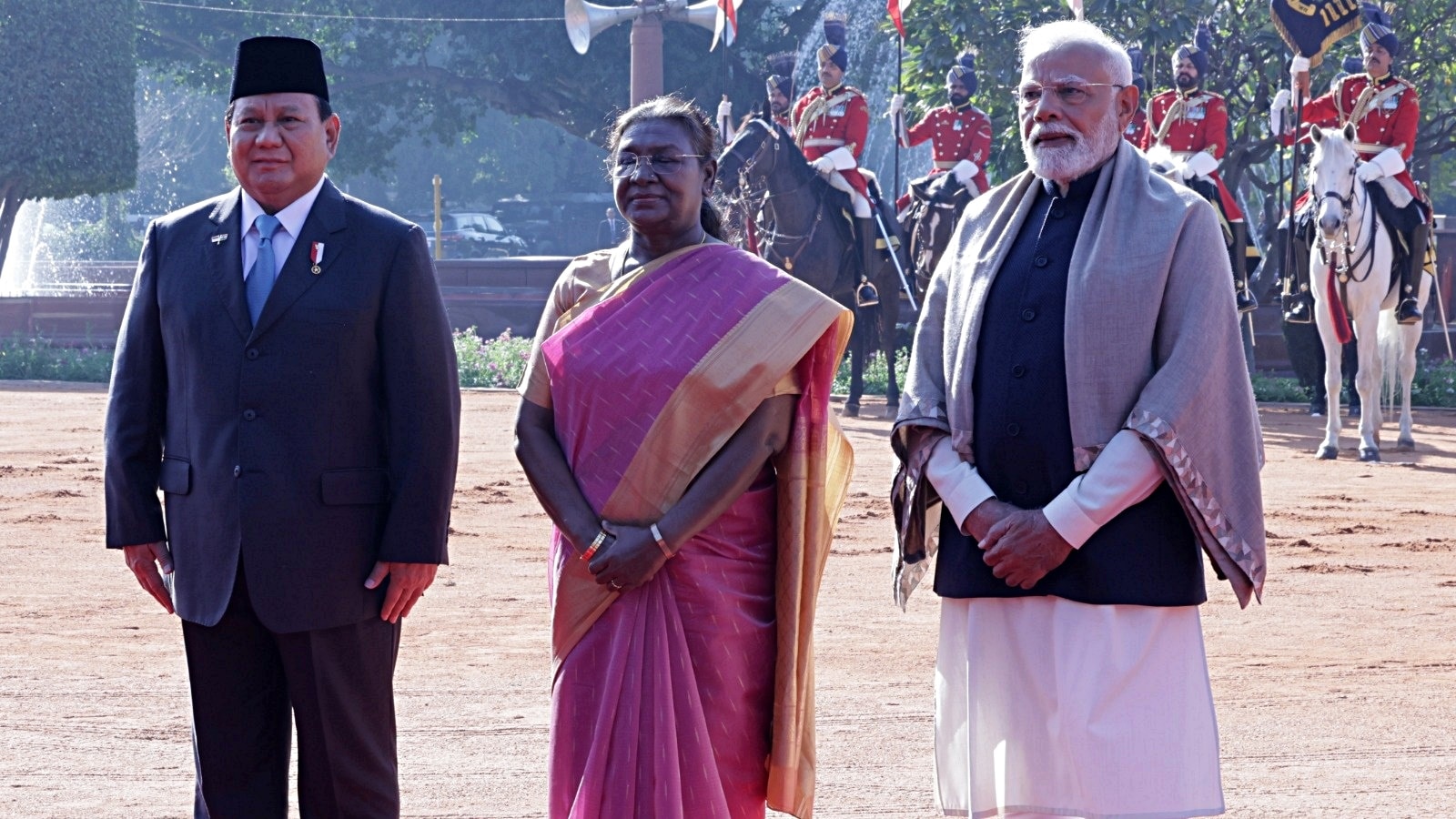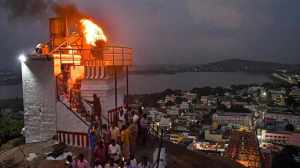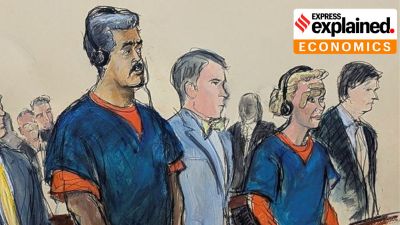The plan to hold simultaneous elections to the Lok Sabha and Assemblies “can promote consistency in governance, prevent policy paralysis, mitigate resource diversion, and reduce the financial burden, apart from offering many other benefits,” she said in her televised address.

The President also praised the decision to replace the old criminal laws – the new laws came into effect in July last year. “We won freedom in 1947, but many relics of a colonial mindset persisted among us for long. Of late, we have been witnessing concerted efforts to change that mindset. Among the most noteworthy of such efforts was the decision to replace the Indian Penal Code, the Code of Criminal Procedure and the Indian Evidence Act with the Bharatiya Nyaya Sanhita, the Bharatiya Nagarik Suraksha Sanhita and the Bharatiya Sakshya Adhiniyam,” she said.
Saying that these were based on “Indian traditions of jurisprudence”, Murmu added that “the new criminal laws place the delivery of justice instead of punishment at the centre of the criminal justice system” and “grant top priority to countering crimes against women and children”.
Referring to the new criminal laws and the ‘One Nation, One Election’ Bills, Murmu said “reforms of such magnitude require an audacity of vision”.
 President Droupadi Murmu addresses the nation on the eve of 76th Republic Day. (@rashtrapatibhvn/X)
President Droupadi Murmu addresses the nation on the eve of 76th Republic Day. (@rashtrapatibhvn/X)
The Constitution (One Hundred and Twenty–Ninth Amendment) Bill, 2024, and the Union Territories Laws (Amendment) Bill, 2024 were introduced in the Lok Sabha on December 17 last year. The two Bills for syncing the terms of the Lok Sabha and State and Union Territory Assemblies have been referred to a Joint Parliamentary Committee.
On Constitution:
The President also spoke about 75 years of the Constitution, saying it has guided the path of our progress. “The composition of our Constituent Assembly was also a testimony to our republican values,” she said, adding that it had representatives from “all parts and all communities” of the country, including 15 women. “When women’s equality was only a distant ideal in many parts of the world, in India women were actively contributing in shaping the destiny of the nation,” she said.
Story continues below this ad
“Justice, liberty, equality and fraternity are not theoretical concepts that we came to learn in modern times; they have always been part of our civilisational heritage. It also explains why the critics who were cynical about the future of the Constitution and the Republic when India had newly become independent were proven so thoroughly wrong,” the President said in her 20-minute address.
On Indian economy:
Saying that “large parts of the country had faced extreme poverty and also hunger” at the time of Independence and even later, the President said: “India’s economy today influences the global economic trends. Today, India is taking leadership positions in international forums. This transformation would not have been possible without the blueprint laid down by our Constitution.”
“In recent years, the economic growth rate has remained persistently high, creating job opportunities for our youth, putting more money in the hands of farmers and labourers, and also lifting more people out of poverty. The bold and far-sighted economic reforms will sustain this trend in the years to come,” she said.
On inclusion of SC, ST and OBC:
At a time when the Opposition parties have been demanding a caste census, Murmu said: “Inclusion is the cornerstone of our growth saga, distributing the fruits of developments as widely as possible”.
Story continues below this ad
 Indonesia President Prabowo Subianto, the chief guest meets PM Modi along with President Murmu on the eve of Republic Day (Express photo by Renuka Puri)
Indonesia President Prabowo Subianto, the chief guest meets PM Modi along with President Murmu on the eve of Republic Day (Express photo by Renuka Puri)
“The government has redefined the notion of welfare, making basic necessities such as housing and access to drinking water a matter of entitlement. Every effort is being made to extend a helping hand to the marginalised communities, particularly of the Scheduled Castes, Scheduled Tribes and Other Backward Classes,” she said, mentioning some of the Centre’s key schemes.
On finance and digital inclusion:
Saying that the government “continues to assign top priority to financial inclusion”, the President said “initiatives such as the Pradhan Mantri Jan Dhan Yojana, Pradhan Mantri Jeevan Jyoti Bima Yojana, Pradhan Mantri Suraksha Bima Yojana” among others, have been expanded to provide access to more people.
“The way the government has used technology in the field of finance has been exemplary. A variety of digital payment options as well as the system of direct benefit transfer have promoted inclusion, bringing a significant number of people within the formal system. It has also brought unprecedented transparency in the system,” she said, adding, “within a few years we have created a robust Digital Public Infrastructure that is among the best in the world”.
On Mahakumbh:
Mentioning the ongoing Mahakumbh, the President said: “There has also been a fresh engagement with our civilisational heritage. The ongoing Mahakumbh can be seen as an expression of the richness of that heritage. An exciting array of initiatives is underway in the domain of culture to preserve and revitalise our traditions and customs.”
Story continues below this ad
On education:
Murmu also flagged the Centre’s efforts towards improving education and skill development, including the scheme to provide internships in the corporate sector.
On India’s space development:
“With a stronger foundation of the school-level education, India has been scaling new heights in various branches of knowledge, particularly in science, along with technology,” she said. “With rising self-assurance, we are increasing our participation in cutting-edge research with a series of initiatives,” she added, mentioning the National Quantum Mission, the Genome India Project and the Indian Space Research Organisation’s recent Space Docking Experiment (SpaDeX) among others.



 President Droupadi Murmu addresses the nation on the eve of 76th Republic Day. (@rashtrapatibhvn/X)
President Droupadi Murmu addresses the nation on the eve of 76th Republic Day. (@rashtrapatibhvn/X) Indonesia President Prabowo Subianto, the chief guest meets PM Modi along with President Murmu on the eve of Republic Day (Express photo by Renuka Puri)
Indonesia President Prabowo Subianto, the chief guest meets PM Modi along with President Murmu on the eve of Republic Day (Express photo by Renuka Puri)





